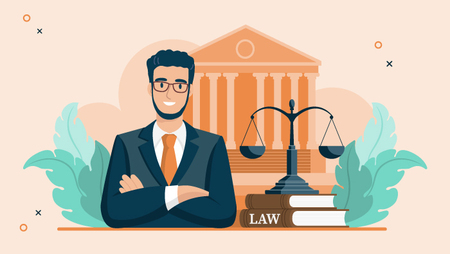Navigating the Legal System: What You Need to Know
The legal system can be a daunting and complex entity to navigate, especially for those who have never had to deal with legal matters before. For anyone who needs to navigate the legal system, there are certain things that you need to know to ensure that you can do so as effectively and efficiently as possible. In this article, we will take a look at what you need to know about navigating the legal system.
What is the Legal System and How Does it Work?
The legal system is a collection of laws, regulations, and procedures put in place by the government to provide a framework for resolving conflicts and disputes between individuals, businesses, and other entities. The legal system is made up of different courts and administrative bodies that are tasked with interpreting and enforcing the law. The legal system is designed to ensure that everyone is treated fairly and impartially, regardless of their background or circumstances.
One of the first things that anyone needs to know when navigating the legal system is how the system works. There are different types of courts and legal proceedings depending on the nature of the case. For instance, civil suits, bankruptcy cases, and criminal cases will all have different court systems, procedures, and legal guidelines that need to be followed.
It is important to note that the legal process can be long and complex, and it is always advisable to seek professional legal guidance if you are not familiar with how the system works.
Getting Legal Help
Legal representation can make a significant difference in your experience of navigating the legal system. Fortunately, there are a variety of legal resources that can help you access legal advice and representation.
Lawyers are professionals who are trained to represent individuals and businesses in legal matters. They can provide advice, negotiate on your behalf, and represent you in court. Some lawyers specialize in specific areas of law, such as criminal law, business law, or family law. It is important to find a lawyer who is qualified and experienced in the area of law that pertains to your case.
Legal aid can also provide free or low-cost legal advice or representation to those who qualify based on their income. Many legal aid organizations specialize in specific areas of law, such as housing law or immigration law.
Alternative Dispute Resolution
Alternative dispute resolution (ADR) is a process that is designed to resolve conflicts and disputes outside of the legal system. ADR can include mediation, arbitration, and negotiation. The goal of ADR is to provide a faster, more cost-effective, and less adversarial way to resolve disputes.
Many courts and legal systems require parties to engage in ADR before filing a lawsuit or going to trial. ADR can be a useful tool for resolving disputes because it allows parties to reach a mutually agreeable solution to a conflict without the expense and uncertainty of going to court.
Conclusion
Navigating the legal system can be a complex and daunting task, but it is not impossible. With some basic knowledge of how the system works and access to legal resources, you can navigate the legal system with confidence and ensure a favorable outcome for your legal matter. Whether you need a lawyer, legal aid, or an alternative dispute resolution, you can find the help you need to resolve your legal matter.



